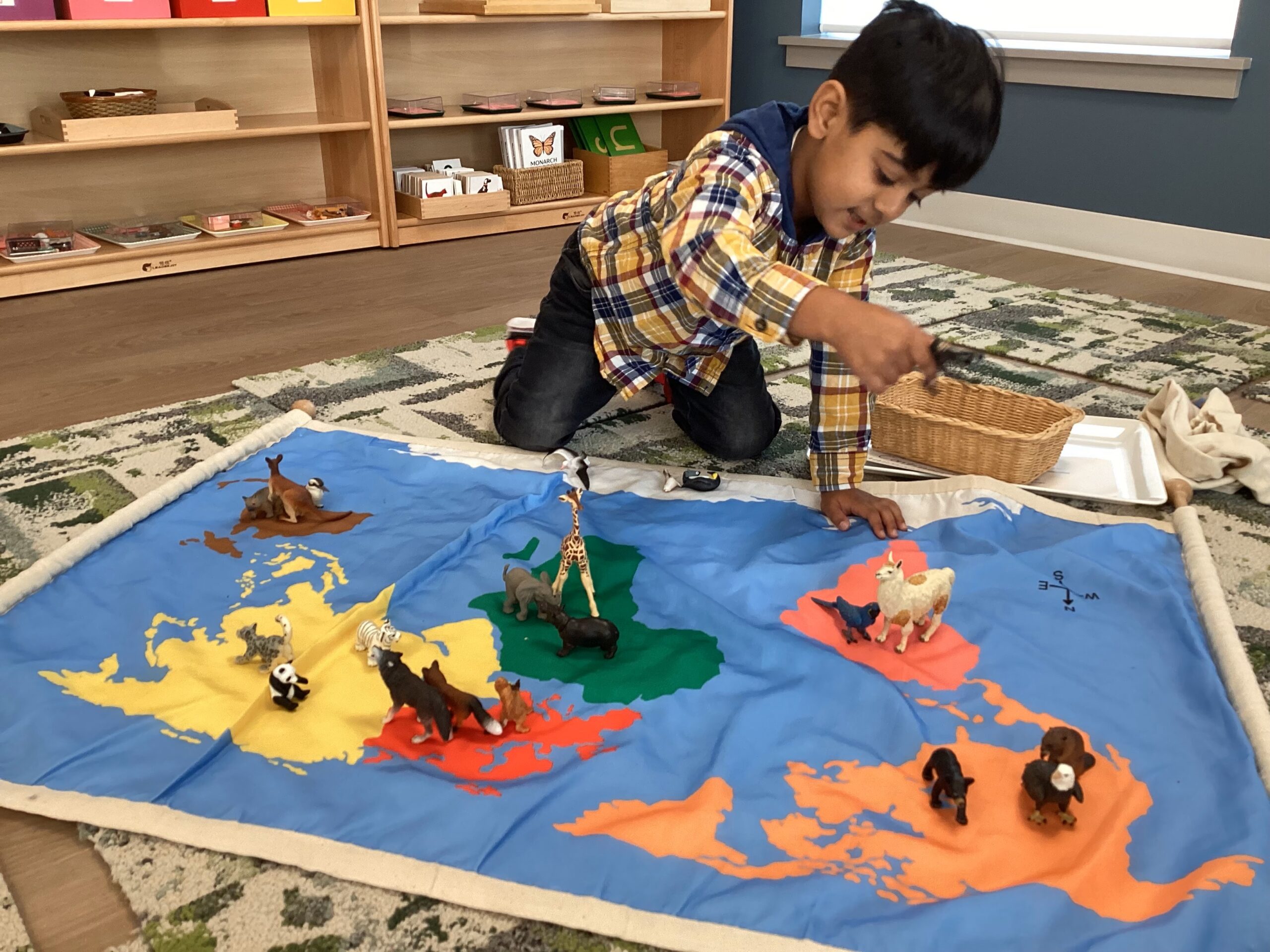With parallels to Erik Eriksen, Jean Piaget, and others who have published their own beliefs of the stages of human development, Dr. Montessori identified four “planes” which she believed universally describe the process and progress of human development from infancy to adulthood. These planes align with the chronological ages of:
- 0-6 years,
- 6-12 years,
- 12-18 years, and
- 18-24 years.
Each six year developmental plane is viewed as having an initial three year period of construction – where the child gathers knowledge, followed by a three year period of consolidation – where the child uses this acquired knowledge to further deepen and formulate his/her own understanding. At every developmental level there are changes in the child’s physical, cognitive, social/emotional, and spiritual being. Learning is not seen as a linear process but one which is cyclical in nature.

As children mature within the Montessori classroom environment, they repeatedly revisit previously explored topics in a sequential manner, deepening and extending personal knowledge with each contact. In this way, the Montessori educational model is known as a spiral-integrated curriculum, as opposed to the more common and traditional school curriculum, which is linear in nature. With both older and younger children in each class, an appreciation of learning differences, rather than student comparison, develops and students become teachers to one another. In this way, natural empathy, leadership and interdependent responsibility develop from an early age. Our philosophical belief that each child is guided by an intrinsic motivation to learn and grow is manifested at all levels of the school.